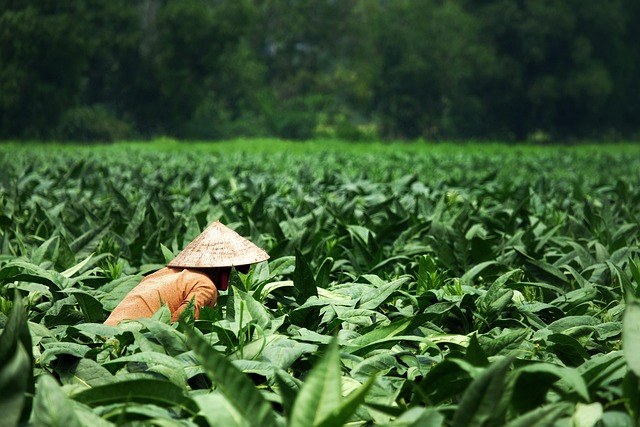Exploring Sustainable Agriculture Training: Insights for Aspiring Farmers
Sustainable agriculture continues to gain momentum as more individuals explore environmentally conscious farming practices. This guide looks into how people are learning about methods like regenerative systems, organic cultivation, and agroecology through structured training programs. From hands-on skills to ecological insights, these educational paths can support efforts toward more resilient food systems. Explore how future farmers engage with these evolving practices.

What Does Organic Farming Certification Involve?
Organic farming certification programs provide comprehensive training in chemical-free agricultural methods, covering crop rotation, natural pest management, and soil fertility enhancement. These courses typically span 6-12 months and include both theoretical knowledge and hands-on field experience. Students learn about USDA organic standards, certification processes, and record-keeping requirements essential for organic operations. The curriculum often covers composting techniques, beneficial insect management, and organic seed selection. Many programs also address marketing organic products and understanding consumer demands in the growing organic food market.
How Do Regenerative Agriculture Courses Transform Farming?
Regenerative agriculture courses focus on farming practices that restore and enhance ecosystem health while maintaining profitable operations. These programs teach carbon sequestration techniques, cover cropping strategies, and integrated livestock management systems. Students explore how regenerative methods can improve water retention, increase biodiversity, and build resilient farming systems. The coursework typically includes soil biology fundamentals, rotational grazing principles, and agroforestry applications. Many courses emphasize measuring and monitoring environmental improvements, helping farmers track their positive impact on land health over time.
Are Agriculture Apprenticeships Worth Pursuing?
Agriculture apprenticeships offer invaluable real-world experience under the guidance of established farmers and agricultural professionals. These programs typically last 1-3 years and combine structured learning with practical farm work. Apprentices gain exposure to seasonal farming cycles, equipment operation, and business management aspects of agriculture. Many apprenticeships focus on specialized areas such as vegetable production, livestock management, or sustainable farming systems. The mentorship component provides networking opportunities and insights into local farming communities, often leading to job placements or land access opportunities.
What Should You Know About Soil Health Training?
Soil health training programs teach the fundamental science behind productive, living soils and their management. These courses cover soil testing and interpretation, microbiology basics, and nutrient cycling principles. Students learn to identify soil health indicators, implement improvement strategies, and monitor progress over time. The curriculum often includes composting methods, cover crop selection, and minimizing soil disturbance techniques. Many programs provide hands-on laboratory experience with soil analysis tools and field assessment methods, preparing students to make informed decisions about soil management practices.
Training Program Costs and Provider Comparison
Sustainable agriculture training costs vary significantly based on program length, location, and specialization level. Understanding these investment requirements helps aspiring farmers make informed educational decisions.
| Program Type | Provider Example | Duration | Cost Estimation |
|---|---|---|---|
| Organic Certification Course | University Extension Programs | 6-12 months | $1,500-$4,000 |
| Regenerative Agriculture Program | Rodale Institute | 3-6 months | $2,000-$6,000 |
| Farm Apprenticeship | National Young Farmers Coalition | 1-3 years | $15,000-$35,000 annually |
| Soil Health Intensive | Soil Health Institute | 2-4 weeks | $800-$2,500 |
Prices, rates, or cost estimates mentioned in this article are based on the latest available information but may change over time. Independent research is advised before making financial decisions.
Building Your Sustainable Agriculture Career
The sustainable agriculture field offers diverse career paths beyond traditional farming, including agricultural consulting, research positions, and extension services. Many graduates establish their own farming operations, focusing on direct-to-consumer sales, farmers markets, or community-supported agriculture programs. Others pursue roles in agricultural technology companies developing sustainable farming solutions or work with conservation organizations promoting regenerative practices.
Professional development continues throughout agricultural careers, with ongoing workshops, conferences, and advanced certifications keeping practitioners current with evolving techniques. The sustainable agriculture community emphasizes knowledge sharing and collaboration, creating supportive networks for new professionals entering the field.
Sustainable agriculture training provides the foundation for addressing global food security challenges while protecting environmental resources. These educational programs prepare students to implement farming practices that can feed growing populations while building healthier ecosystems. Whether through formal degree programs, certification courses, or hands-on apprenticeships, aspiring farmers can find training pathways that match their goals and learning preferences. The investment in sustainable agriculture education pays dividends through improved farming outcomes, environmental stewardship, and contribution to resilient food systems that benefit communities worldwide.




